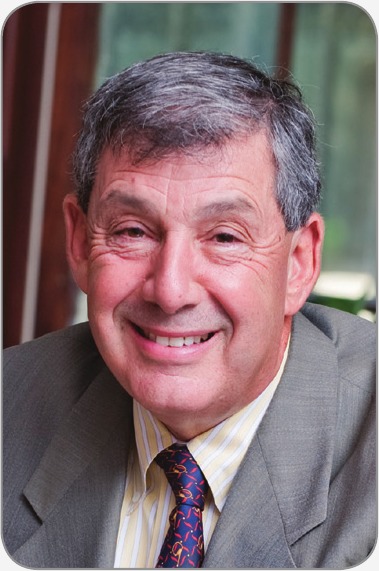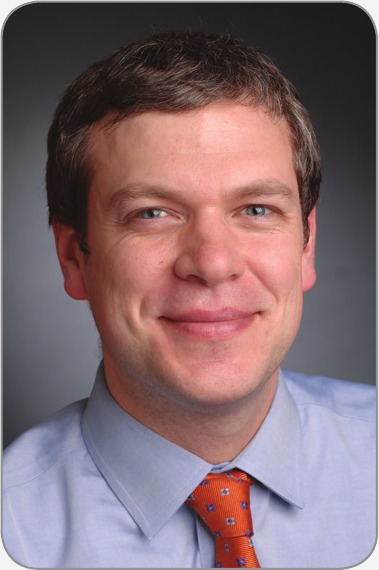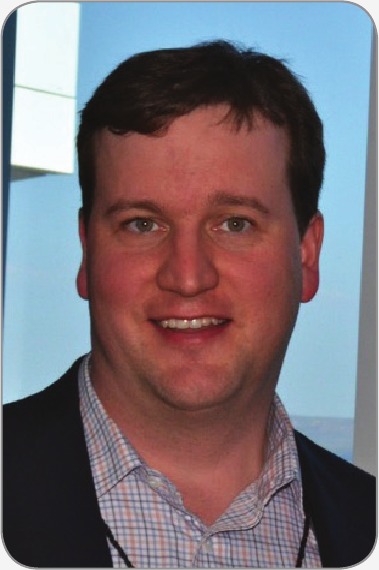
Bruce A. Chabner

Jason Efstathiou

Scott Dryden-Peterson
As we rejoice in the recent successes of cancer treatment research, we need to be aware of the rising epidemic of cancer in the developing world [1], In some middle income countries such as China, India, and Brazil, the increasing attention afforded to cancer comes as a consequence of improving longevity and the control of infectious diseases. They will undoubtedly inherit the unwelcome morbidity and mortality of cancer as their population ages and their life styles change. In other countries, particularly in sub-Saharan Africa, a surge in cancers related to immune suppression (the so-called Second Wave of AIDS) has become increasingly evident. In the accompanying commentary, Julie Livingston, an ethnographer and student of medical care in Africa, exposes the immense challenge created by this second wave of disease attributable to HIV/AIDS [2], A more detailed examination of the delivery of cancer care in Botswana reveals the complexity of the problem.
Spurred by a growing interest among medical oncology fellows in global oncology, in May of 2013 we spent one week in Gaborone, the capital of Botswana, as part of a team of cancer physicians from the Massachusetts General Hospital (MGH). Our team visited the major hospitals responsible for training physicians and caring for cancer patients. This visit was made under the auspices of a collaboration between our hospital and the Ministry of Health of the government of Botswana, its medical school, and its hospitals, and as an ex tension of the long-standing Botswana-Harvard Partnership for study of the AIDS epidemic. The new cancer collaboration, informally named BotsOGO (bots-o-ho, or “Health” in the native Setswana, and standing for Botswana Oncology Global Outreach), began 18 months ago as an effort focused on developing a collaborative partnership between the Department of Radiation Oncology at MGH and the Radiation Oncology unit at the Gaborone Private Hospital. Under the leadership of Jason Efstathiou of MGH Radiation Oncology, that effort has now expanded to include surgery and medical oncology. On this most recent trip, we had the opportunity to conduct teaching rounds, offer lectures, and take part in patient care, as well as participate in discussions with hospital and government officials.
Botswana is a country of contradictions. It has many gifts: marvelously friendly people; a store of valuable natural resources (diamonds and coal) that provide a substantial treasury for its 2 million people; a stable democratic government; and a comprehensive public health care plan. What it lacks is the full complement of specialists essential to the practice of oncology, including medical oncology, radiology, and surgical subspecialties. A single young specialist from Zimbabwe provides radiation therapy to the country of 2 million people. Other physician specialists, including pathologists, are in equally short supply. To fill gaps, contract employees from the Congo, Zimbabwe, India, China, or Cuba are hired as temporary employees. Some of the latter do not speak English, the national language, so communication with other staff and with patients is often difficult. With the objective of growing its own medical specialists, the country created a new medical school at the University of Botswana. It is a beautiful campus of imposing brick and glass buildings. Despite weathering a series of crises in recruiting adequate faculty and organizing its curriculum, the UB medical school will graduate its first class of doctors in 2015. Construction of a 400-bed University Hospital for tertiary care is underway, but this new facility faces a major challenge in recruiting the requisite medical faculty.
With respect to the practice of oncology, the few clinical oncologists practicing and teaching house staff in Bostwana face serious obstacles. While all Botswana citizens are entitled to government-sponsored medical care, the hospitals are crowded and understaffed. The system of personal record keeping (the cancer patient travels with his or her own sheaf of papers) often fails to provide essential information. Public access to cancer medicines is largely confined to generic cytotoxic drugs, as the more expensive targeted molecules and biologicals are available only through private sources. Drug shortages for common medications are frequent, unpredictable, and nerve wracking to the doctors trying to carry out a long-term treatment plan. As Dr. Livingston notes, palliative care is complicated by the shortage of antiemetics and pain medications. The system of ordering drugs through a government-run central medical supply unit for the entire country requires a rethinking, according to hospital and medical staff.
And, as Dr. Livingston explains, the challenges also are cultural. While most people are now aware of AIDS as a personal threat, and HIV-infected adults participate in national programs for antiretroviral therapy, there is limited understanding of cancer as a treatable, curable, and preventable disease. Prevention and early detection have not gained a prominent role in community medical practice. Patients seek help only at the latter stages of tumor growth. Particularly for breast cancer, there is a reluctance to face surgery and to complete the necessary adjuvant or neoadjuvant chemotherapy. We encountered a number of young patients with locally advanced breast cancers who vacillated about undergoing treatment.
As with HIV/AIDS, American academic institutions are actively engaged in aspects of research, training, and even patient care. The University of Pennsylvania has had a longstanding collaborative relationship with the Department of Medicine at Princess Marina Hospital (PMH), and, more recently, a primary focus on cervical cancer screening. Baylor University School of Medicine supports a full-time pediatric oncologist, Jeremy Slone at PMH. Under the BotsOGO initiative, the MGH Radiation Oncology Department and Cancer Center have assisted the country's lone radiation oncologist in setting up a brachytherapy program for cervical cancer treatment, an effort that now treats an astounding 60 patients per month. In addition, this partnership runs a successful monthly Tumor Board, which has been meeting since February 2012 linking the oncology community in Botswana to MGH-based disease site experts. The MGH Cancer Center is also planning to support a full-time oncologist at PMH for the next several years, and will offer help in training other cancer specialists.
Everyone in Gaborone, from government ministers, medical school and hospital officials, and the U.S. Embassy staff, to the patients on the cancer wards, greeted us with open arms. Once we met the patients and felt their immediate appreciation, we had little doubt that the collaborative efforts that lay ahead will reward us in many ways and broaden our personal perspective about our health care mission. Botswana is only one of many African countries facing the same challenges in health care. Other, more populous nations, such as Mozambique and Mali, have similar if not greater gaps to fill, and, unlike Botswana, have neither its financial resources nor its record of political stability. Each of these countries will present a unique set of resources, political and social circumstances, and medical challenges to those committed to the cause of global cancer control. As sub-Saharan Africa, with its immense resources, emerges as an important player on the world economic stage, its people deserve to convert their economic success into meaningful advances in health care and education.
Western hospitals and medical schools are increasingly committed to meeting these challenges, but will require support for training programs, faculty exchanges, and facilities. Sandra Swain, the Immediate Past President of the American Society of Clinical Oncology, made global oncology the subject of her presidential address at the June 2013 meeting, and announced a new International Innovation Grant (www.conquercancerfoundation.org/innovation). The National Cancer Institute has likewise identified global oncology as a major priority for research, but, in an era of extreme financial stringency for NCI, the commitment of new resources has been very limited [3], Nongovernmental organizations, and foundations in collaboration with local governments and medical institutions may a Iso play a role in training and implementation of cancer control. A broader effort, modeled after the successful programs for HIV prevention and treatment in Africa, will require the sustained support of all of these players to turn the tide of cancer in the developing world.
Footnotes
Editor's Note: See the related commentary on page 783.
Disclosures
Bruce A. Chabner: Sanofi, Epizyme, PharmaMar,GlaxoSmithKline, Pharmacyclics, Ariad, and Pfizer (Data Monitoring Committee) (C/A); Eli Lilly (H); Gilead, Epizyme, Celgene, Exelixis (Ol).
The other authors indicated no financial relationships.
(C/A) Consulting/advisory relationship; (RF) Research funding; (E) Employment; (H) Honoraria received; (Ol) Ownership interests; (IP) Intellectual property rights/inventor/patent holder; (SAB) Scientific advisory board
Reference
- 1.Vento S. Cancer control in Africa: which priorities? Lancet Oncol. 2013;14:277–370. doi: 10.1016/S1470-2045(13)70022-6. [DOI] [PubMed] [Google Scholar]
- 2.Livingston J. Cancer in the Shadow of the AIDS Epidemic in Southern Africa. The Oncologist. 2013;18:783–786. doi: 10.1634/theoncologist.2013-0215. [DOI] [PMC free article] [PubMed] [Google Scholar]
- 3.Varmus H, Kumar HS. Addressing the growing international challenge of cancer: A multinational perspective. Sci Transl Med. 2013 Mar 6;5(175):175cm2. doi: 10.1126/scitranslmed.3005899. [DOI] [PubMed] [Google Scholar]


